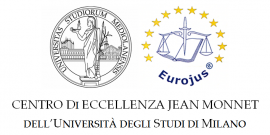L’individuazione del datore di lavoro nei rapporti transnazionali nella giurisprudenza della Corte di giustizia
Con la sentenza del 16 luglio 2020, causa C-610/18, AFMB Ltd e altri c. Raad van bestuur van de Sociale verzekeringsbank, la Corte di giustizia ha stabilito che il datore di lavoro di un autotrasportatore internazionale è l’impresa che esercita l’autorità effettiva su tale autotrasportatore, che sopporta, di fatto, il costo salariale corrispondente e dispone del potere effettivo di licenziarlo, e non l’impresa con cui detto autotrasportatore ha stipulato un contratto di lavoro, formalmente presentata in tale contratto come datore di lavoro di questo stesso autotrasportatore. Tale pronuncia offre l’occasione per approfondire la nozione “sostanzialista” di datore di lavoro che la giurisprudenza della Corte ha elaborato, anche nelle interrelazioni con i principi di territorialità e di personalità dell’obbligo contributivo, nonché con il divieto di abuso del diritto e con la recente disciplina del distacco transnazionale di cui alla Direttiva n.2014/67/UE, recepita in Italia con il D. lgs. n.136/2016.
Per leggere l’articolo completo, clicca qui
With the Judgment of 16 July 2020, Case C-610/18, AFMB Ltd and others v. Raad van bestuur van de Sociale verzekeringsbank, the Court of Justice ruled that the employer of an international hauler is the company that exercises effective authority over that hauler, who actually bears the corresponding wage cost and has the effective power to dismiss him, and not the company with which such hauler has entered into an employment contract, formally presented in that contract as employer of work of this same hauler. This ruling offers an opportunity to deepen the “substantive” notion of employer that the Court’s jurisprudence has elaborated, also in the interrelations with the principles of territoriality and the personality of the contribution obligation, as well as with the recent discipline of the transnational posting of referred to in Directive no. 2014/67 / EU, implemented in Italy with Legislative Decree no.136 / 2016.
To read the full article, click here


